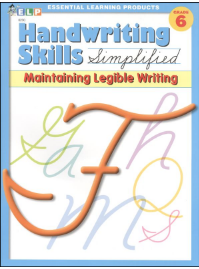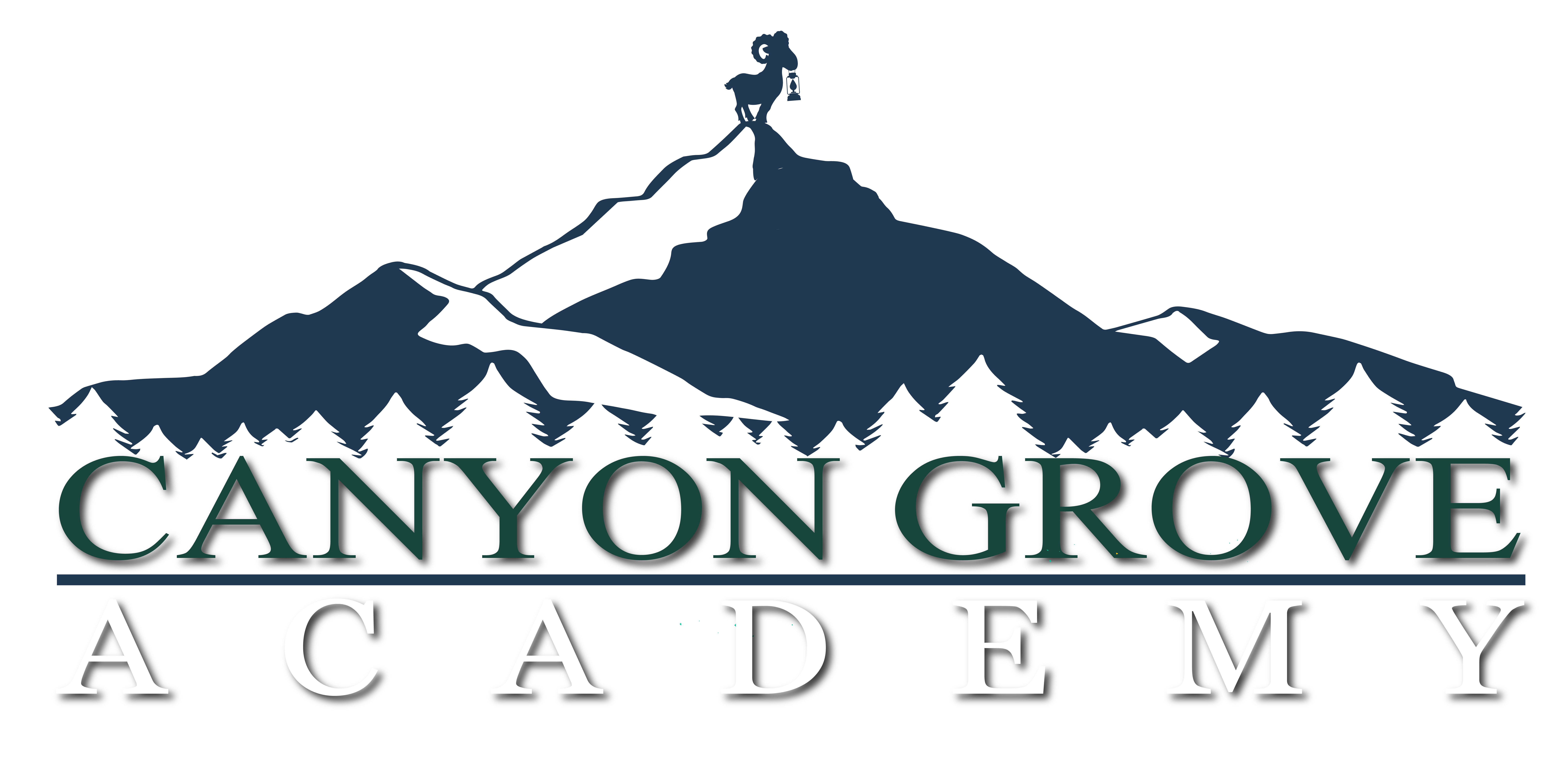FAMILY LITERACY & SKILLS
We have taken all the guesswork out of Language Arts and simply offer lesson plans that are effective, efficient and fun. Our CGA program provides activities families can do together along with specific grade-level appropriate material that cover all the academic needs. This program is the easiest to follow because each weekly lesson is provided and sequences weekly for parents to follow. Additionally, the power standards checkpoints are provided throughout the year. So you can easily upload the submissions into Ally and check that your child is competent.
Family Literacy and Skills Curriculum Map by Grade Level
Week 1: Homepage with Links to the First Lesson for grades K-3.
Explanation of the Family Literacy and Skills Program.
Each week, there will be three days of skill practice in order to:
- Increase in knowledge.
Family literacy is available for all grades and reading levels placing an importance on phoneme awareness, phonics and decoding, but then going beyond with syntax, morphology, and semantics. Reading needs a brand new circuit of knowledge and the Family Skills Literacy program can change the thinking through a print and digital adaptive, blended instruction. Each week they will connect the world around them to their own experiences through fluent cognitive awareness.
- Expands vocabulary.
Family Literacy expands vocabulary by exposing the students to new words and ways they can sound out and find the meaning of words through the science of reading, by increasing their ability to expand their vocabulary, spelling, grammar skills and helping the student be a part of this entire comprehension, systemic approach to literacy.
- Sharpens the mind.
Family Literacy sharpens the mind through being a part of the entire comprehension and engaging the students’ brains tapping into their critical analysis and empathy to help make judgments and focusing on the importance of messages in a single word and simple phrases so by the end of the year students will have an automatic, fluent, comprehending brain.
- Enhance the imagination.
Reading and writing are great entertainment and have to be part of this entire comprehensive process. Family Literacy will allow your student to travel to a new world each week connecting their thoughts and feelings. Reading is not only about uncovering new discoveries, but a vehicle to challenge and reflect.
- Early Learning
We have the absolute best academic support for early learning, engagement, and mastery. CGA family literacy helps build a sense of self understanding and facilitates evaluation of individual needs. The more a student knows about a word, the quicker the student will read and comprehend words and stories.
Canyon Grove Humanities (History & Language Arts)
Humanities classes are designed to stimulate thinking and to help develop strong writing skills for the students. Based on student interaction and engagement, these courses will strengthen deeper reading skills, critical thinking, productive collaboration, accountability, and encourage follow-through.
21/22 Humanities Overview
Shurley English
This program is highly structured. Lessons are taught with continual teacher-student interaction. Students then complete worksheets or writing assignments from their workbooks. CD’s present jingles and the question and answer flow for different types of sentences. The teacher’s manual explains the methodology and offers useful teaching tips and some creative ideas. Learn More
Notes: Because the methodology and concepts are repeated from year to year. You can begin to use this program at any level—you need not go back to level 1.
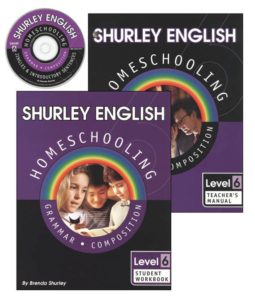
Moving Beyond The Page
Explore how earthquakes, climate, ocean waves, and volcanoes make the world such a dynamic planet. Journey to the microscopic world of cells to learn how building blocks of life function and reproduce. Read incredible stories about men and women in our country’s past who sacrificed to ensure freedom and equal treatment for all. Experiment with chemical and physical changes.
At Moving Beyond the Page, we believe that children learn when they are actively engaged in their learning. This is why we include many hands-on and engaging science kits to teach your child the science topics being covered. You cannot find a more hands-on science curriculum available for homeschoolers.
The Age 10-12 level uses these and many more activities to thoroughly cover the state and national standards in science, social studies, and language arts.
In this level, we want students to begin taking more responsibility for formulating their own ideas and directing their day. For this reason, our 10-12 units are all student directed. The primary lesson plans are written for your child to read and follow. As a parent, you will still be actively involved. We provide parent overviews of each lesson that include descriptions of the activities and answer keys for you. There are still many activities and opportunities for you to work with your child. Learn More
Comes with: Each Concept comes with a variety of Literature, Manipulatives, a Teachers Manual and Student Activity book.
Notes: Moving Beyond The Page is a literature based curriculum. It does become overwhelming with so many activities. Our favorite way to use it is to pick and choose between activities and not become bogged down by doing all of them. Placement Test
Reading Eggs (Online)
Makes learning to read interesting and engaging for kids, with great online reading games and activities. Children love the games, songs, golden eggs and other rewards which, along with feeling proud of their reading, really motivate children to keep exploring and learning. Learn More
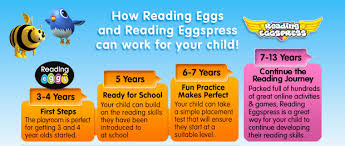
Reading A-Z (Online)
Because it is delivered over the Internet, Reading A-Z is a constantly changing program. Each month, Reading A-Z adds new books, lesson plans, and other resources, thus continually expanding its wealth of materials. Learn More
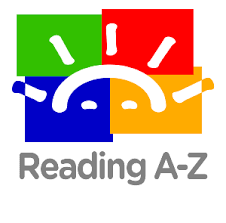
Spelling You See
Modern Milestones is designed for students in the Word Extension stage of spelling. Students will read about the contributions of many different people during the last four centuries. Students will begin to learn details about specific spelling patterns, particularly how prefixes and suffixes are used to expand or change the meaning of words.
Features artists, musicians, scientists, and others who have influenced our world since early modern times
- Expands and adapts the familiar Spelling You See activities:
- marking word patterns – focuses attention on the ways in which suffixes and prefixes affect the spelling of different words
- copy work – continues to be a valuable tool to help the brain pay attention to details in print
- dictation – gives an opportunity for the student to demonstrate decoding and encoding in a meaningful context Learn More
Comes With: Instructors Handbook and Student Pack.
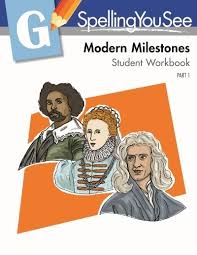
Soaring with Spelling
Each lesson within the Level 6 spelling and vocabulary program contains 16 list words. List words are progressively more difficult than those used in prior levels. Multi-syllable words and more complex words (words with silent letters) are common in this level. Lessons contain games such as proofreading, deciphering puzzles, word jumbles, crossword puzzles, word search, definition, unscrambling words, identifying misspelled list words in a paragraph or sentence, alphabetizing word groups, and complete the sentences. Learn More
Comes With: Workbook and Answer Key.
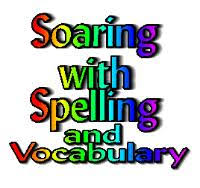
All About Spelling
In Level 5, your student will continue to learn encoding skills, reliable spelling rules, and multisensory strategies for spelling, along with exciting new concepts including 7 new phonograms, words with multiple suffixes, words with unaccented syllables, plurals, I-Before-E generalizations, and more words with Silent E. Phonological awareness and encoding skills are taught throughout Level 5.
Comes With: Teachers Manual, Student Pack and Interactive Kit (If you are using this curriculum with All About Reading the Interactive Kit is the same so you only need one).
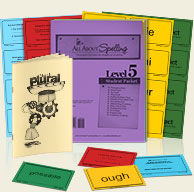
Spelling Workout
Spelling Workout has all the components you need to lead students from simple sound-letter relationships to more complex spelling patterns. Students learn spelling skills based on phonics through unique, cross-curricular reading passages, practice, and high-interest writing activities. Packed with flexible lessons, motivating activities, including fun riddles and puzzles, this dynamic program leads students to spelling success! Learn More
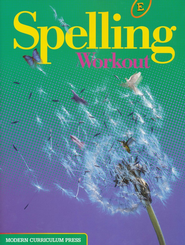
Writing with Skill
Susan Wise Bauer wrote the Writing with Skill for students to begin to work through independently, and the text is written directly to the student. Organized by days, each “step” progressively moves students through the workbook as they move from one day to the next. Covering the basics of composition, outlining, sentence skills, beginning literary criticism of poetry and prose, writing narratives and descriptions, and researching and documenting sources, the course culminates with a final project. Using extensive literary models and step-by-step instructions on the lesson concepts, students will gain the tools needed to write with clarity and confidence. All source material is included; students will need to write their assignments in a separate book. Grade 5-8. Learn More
Comes With: Instructor Text and Student Workbook.
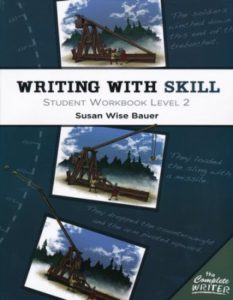
Four Square Writing
Teach writing skills using this innovative new approach. The Four Square method can be used with all forms of writing and will fit any reading or language arts program. This step-by-step approach is built around a simple graphic organizer that first shows students how to collect ideas and then helps them use those ideas to create clear and polished prose. Open-ended reproducibles make the technique accessible to writers of all ability ranges. Learn More
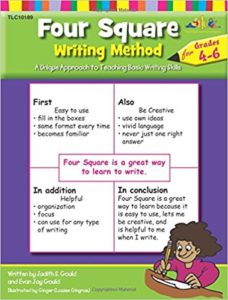
Winning with Writing
This level covers direct, indirect quotations, dialogue, the writing process, creative writing, personal narrative, descriptive writing, persuasive writing, informational writing, compare and contrast writing, and explanatory writing, among other things. Learn More
Comes With: 2 Workbooks and Answer Key.
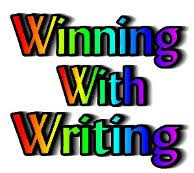
IEW Writing Course B
Grades 6-8 Recorded live with Mr. Andrew Pudewa, this four-DVD writing course for middle school students new to IEW lays a solid foundation of writing skills. Over the course of 15–30 weeks, students will learn how to effectively use a wide range of structural models and stylistic techniques in their compositions, as they write on a variety of enjoyable fiction and non-fiction topics. Included with the student handouts are complete teacher’s notes, source texts, assignments, and checklists. Learn More
Comes with: Student Notebook and Instructional DVDs.
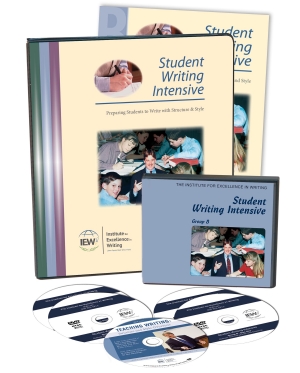
Brave Writer
For your rapidly growing writers! (11-12 years)
Watch your emerging writers take more and more responsibility for their writing with our 12 month-long writing projects found in this amazing program! You’ll guide and coach your middles in writing forms that facilitate growth in skills like:
- summary,
- reporting,
- citing sources,
- letter writing,
- book reviewing,
- and interviewing.
At the same time, you’ll help your kids emotionally invest in their work by appealing to their creativity, personal passions, and expanding curiosity!
The Faltering Ownership program product:
- Includes 12 month-long writing projects
- Week-by-week plans for each project
- A semester-long guide to writing a report (and throwing a party!)
Faltering Ownership is visually engaging, easy to use, and lasts an entire school year. The instructions for each project are detailed with illustrations as needed. Learn More
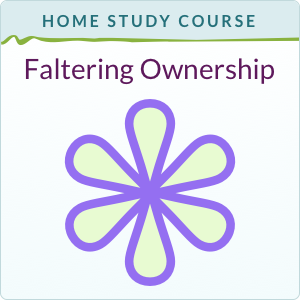
Growing with Grammar
Simple subjects and complete subjects, simple predicates and complete predicates, diagramming compound subjects and predicates, avoiding run-ons, divided quotations, outlining, advanced capitalization, appositive nouns, multiple direct objects, predicate nouns, subject-verb agreement with more than one subject, confusing verbs, the antecedent, subject and object pronouns, reflexive pronouns, demonstrative pronouns, indefinite pronouns, interrogative pronouns, indefinite pronouns, interrogative pronouns, compound words, proper and predicate adjectives, using apostrophes, degrees of adverbs. Learn More
Comes With: Workbook and Answer Key.
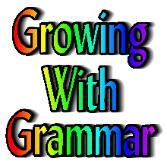
Digging into Diagramming
It has been determined that many students find it easier to understand the mechanics of grammar by focusing on diagramming sentences while learning basic grammar concepts. There are 41 lessons in this sentence diagramming book. Each lesson contains sentence diagramming instruction as well as sentence diagramming problems to be completed by the student. The book starts with basic sentence diagramming and progresses through more difficult sentence diagramming concepts. Learn More
Comes With: Workbook and Answer Key.
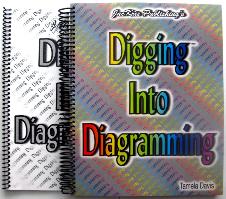
Editor in Chief
Improves students’ grammar, punctuation, spelling, capitalization, and attention to detail using a standards-based thinking approach rather than drill and practice. This effective method teaches students to carefully analyze and edit stories. This book includes 16 lessons in grammar and mechanics. Students identify and circle errors in each story and write their correction. The grammatical and mechanical errors in the paragraphs are based on general instructional guidelines for specific grade levels; the content level, however, is ungraded, allowing usage of these materials at many instructional levels. Writing styles and content are varied to sustain interest and to broaden the students’ exposure to different writing formats, such as letters, stories, and dialogue. The illustrations integrated into the context of the activities further spark student interest. The skills developed can be applied to the students’ own writing. Detailed answers are also included. Learn More
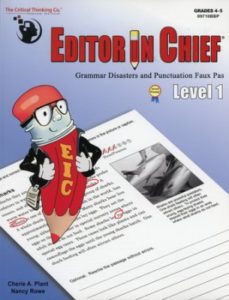
Reading Detective
The standards-based critical thinking activities of Reading Detective® develop the analysis, synthesis, and vocabulary skills students need for exceptional reading comprehension. The activities are especially effective at helping students understand more challenging reading concepts such as drawing inferences, making conclusions, determining cause-and-effect, and using context clues to define vocabulary. Students read and analyze short literature passages and stories that include fiction and nonfiction genres. Then they answer multiple-choice and short-response questions, citing sentence evidence to support their answers. Learn More
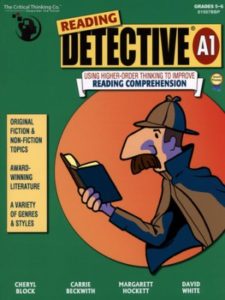
Science Detective
The standards-based critical thinking activities of Reading Detective® develop the analysis, synthesis, and vocabulary skills students need for exceptional reading comprehension. The activities are especially effective at helping students understand more challenging reading concepts such as drawing inferences, making conclusions, determining cause-and-effect, and using context clues to define vocabulary. Students read and analyze short literature passages and stories that include fiction and nonfiction genres. Then they answer multiple-choice and short-response questions, citing sentence evidence to support their answers. Learn More
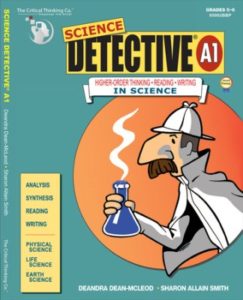
The Language Mechanic
The Language Mechanic is a comprehensive program that uses fun examples and logical reasons to eliminate the confusion students often feel while learning the mechanics of language. This book demonstrates and reinforces why each language rule is important. Lessons begin with a “grabber”—a humorous miscommunication that results when a rule is broken. Examples are followed by an explanation of the specific rule, the logic behind it, then guided and independent practice. Learn More
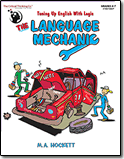
Word Roots
Students learn the meaning and spelling of roots, prefixes, and suffixes commonly used in English. Learning these word elements dramatically improves spelling and the ability to decode unfamiliar words. The activities focus on using these words in context to help students incorporate each word into their vocabulary and retain the correct spelling. There are periodic reviews to make sure students retain what is taught in the lessons. Word Roots books will add hundreds of words to your students’ vocabulary and greater depth to their thinking and writing. Learn More
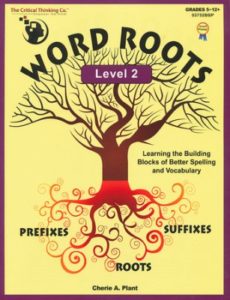
Zaner-Bloser
Zaner-Bloser Handwriting is a complete handwriting program that can be taught in as little as 15 minutes a day! The Zaner-Bloser style teaches a cursive alphabet that is made up of four basic strokes: the undercurve, downcurve, overcurve, and slant.
This fifth-grade cursive workbook focuses on manuscript maintenance and mastery of cursive. Colorful and engaging exercises include tracing and writing letters, joinings, words, sentences, and longer passages. Review and application exercises are included throughout. Shape, size, spacing, and slant are emphasized as the keys to legibility. The last unit is “using what you have learned” and focuses on real-life applications of cursive handwriting such as writing notes, writing an outline, writing a list, writing a poem, and more. Learn More
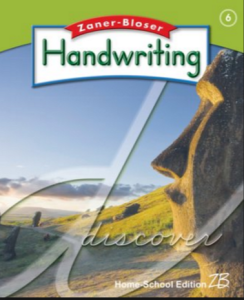
D’Nealian
D’Nealian Handwriting is the original continuous stroke handwriting program! It’s based on a few simple connecting strokes that children use to write in cursive.
Three units are included in this Grade 4 workbook: Reviewing Manuscript Letters, Writing Cursive Letters and Applying Handwriting Skills. Students will practice writing capital and lowercase letters (paying particular attention to the finer details of each letter’s strokes), copy the provided letters/words/sentences provided, practice correct spacing, and finish assignments based on real-life situations. Learn More
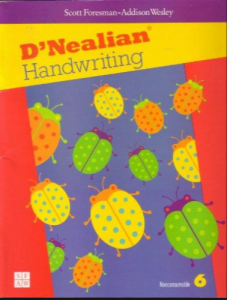
Handwriting Skills Simplified
Mastering Cursive Writing, Level F guides in the development of legible handwriting and provides opportunities for practice. Learn More
